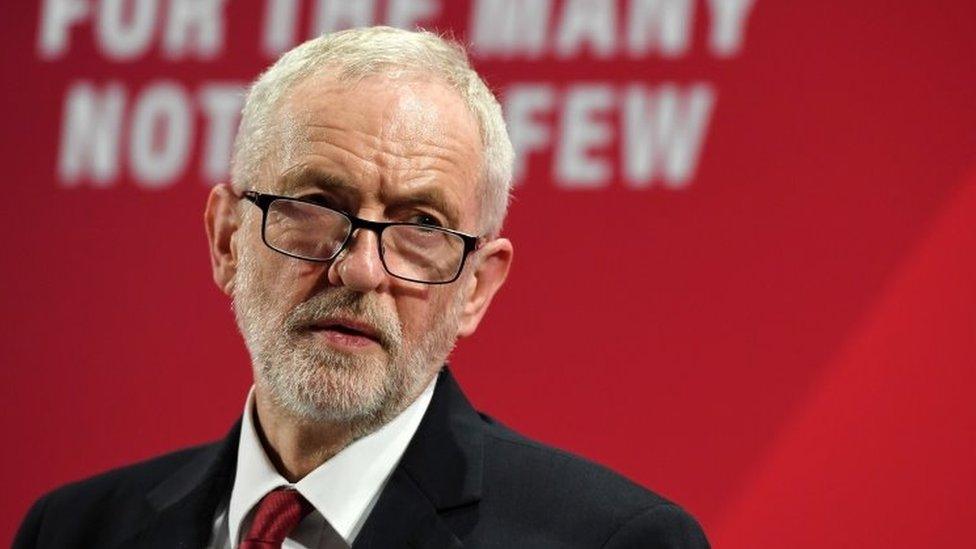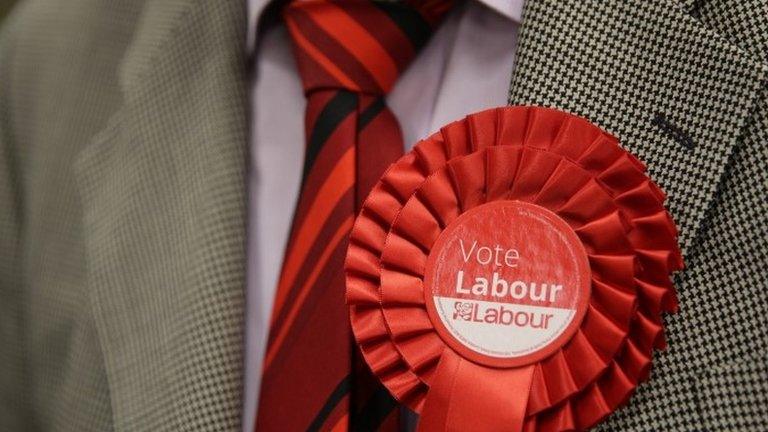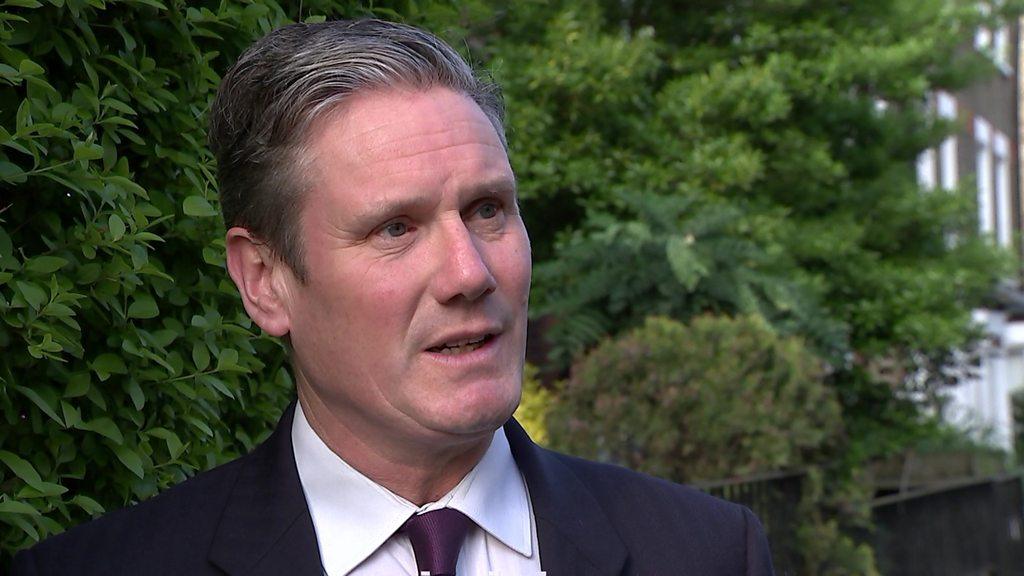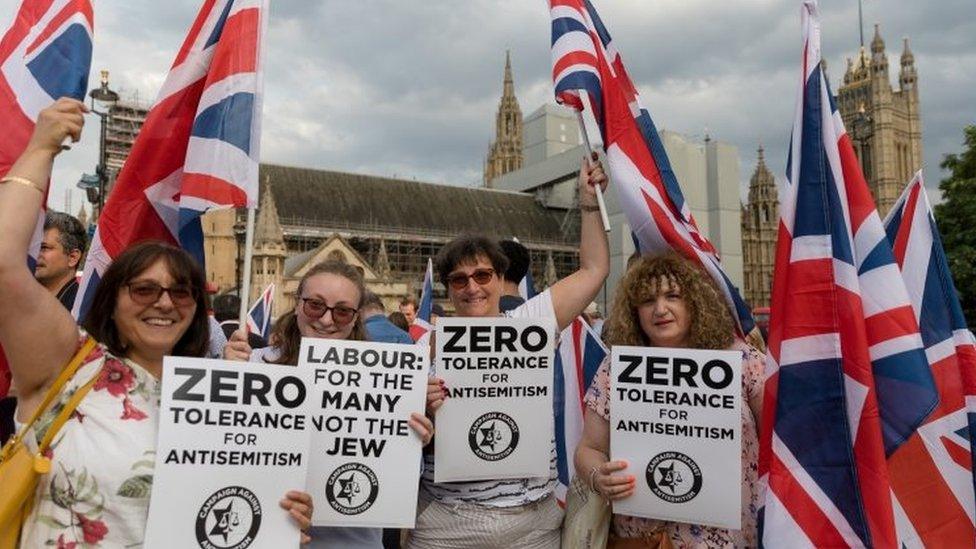Labour's agony over anti-Semitism far from over
- Published
Former Labour party staff respond to High Court ruling
Was the whistleblowers' day in court the end of Labour's agony over anti-Semitism?
Not for a moment. Jeremy Corbyn's response to Labour's total reversal and apology was to question the merits of settling at all, and that could prompt further legal action.
Backers of his may look to challenge the decision itself.
There is another inquiry into the leaking of a report that looked at the problem in the party.
And most importantly perhaps, a significant inquiry being carried out by the Equality and Human Rights Commission is due to report in the next few months.
The arguing about what happened and how is far from over.
And it was still astonishing to stand in a slightly shabby corner of the grand Royal Courts of Justice this morning, listening to the Labour Party's lawyer apologise unreservedly for what happened specifically in the case of the Panorama whistleblowers.
Astonishing still that the Labour Party, a political movement based on fighting for equality and against racism, found itself in a situation where its members and officials have been playing out a battle over anti-Semitism for so long - on the airwaves, in constituency meetings, in executive meetings and also in the courts.
The argument is not settled.

Jeremy Corbyn's response to Labour's apology was to question the merits of settling at all
Mr Corbyn and his backers will continue to fight their corner.
They are likely to continue to resist many other MPs and members' version of events.
James Schneider, a key member of Mr Corbyn's team, who has been by his side during countless campaigns, told the settlement made him "sad and angry", not least because it would not help people understand what had gone wrong and why.
And Mr Corbyn's supporters' influence in the party has not just disappeared.
The campaign group Momentum has already sent an email appeal to its members using today's settlement as a reason why they have to campaign hard to keep seats on the party's ruling body.
Len McCluskey, the boss of the powerful union Unite, is still arguing online against the decision.
And while Keir Starmer always said he deplored anti-Semitism, he did stay on the front bench of the party, publicly supporting the Corbyn leadership, while only a handful of Labour MPs took a much more vocal stance.
It is not going to be the case that Sir Keir can simply click his fingers and make all the animosity, all the anger, all the conflict go away. A lot is unresolved.
Even after the Equality and Human Rights Commission reports, Labour is unlikely to come to a settled view that every member can sign up to about what went wrong.
But after many years of fighting about this issue, the difference in the Labour leadership's attitude is clear.
When it comes to the anti-Semitism whistleblowers, Sir Keir Starmer has said sorry.
Jeremy Corbyn would not - because he says this gives the whistleblowers' claims about what happened within the Labour party credibility.
And the difference is as stark as that.
- Published22 July 2020

- Published14 July 2020

- Published18 November 2020

